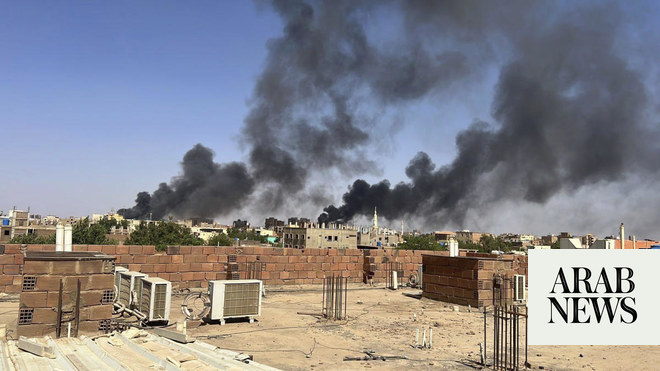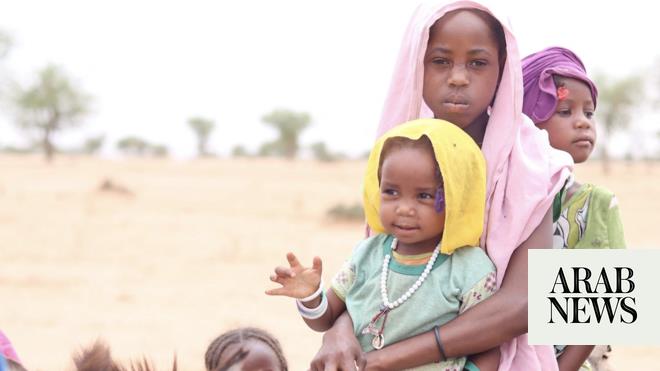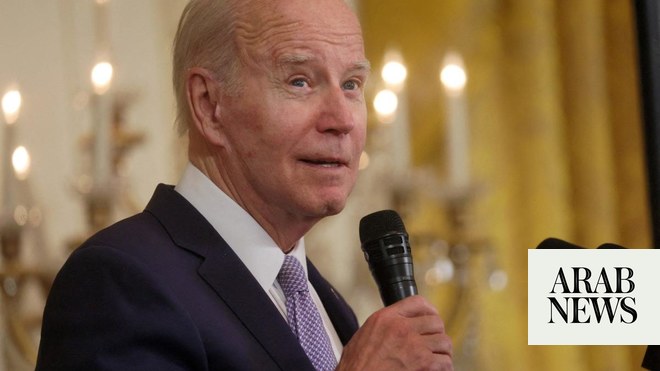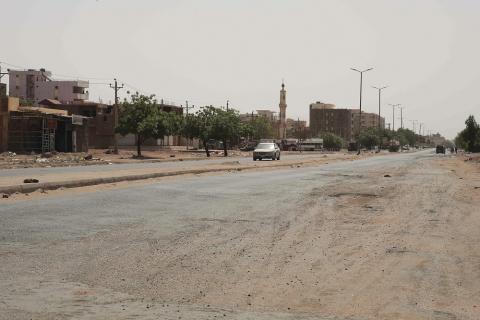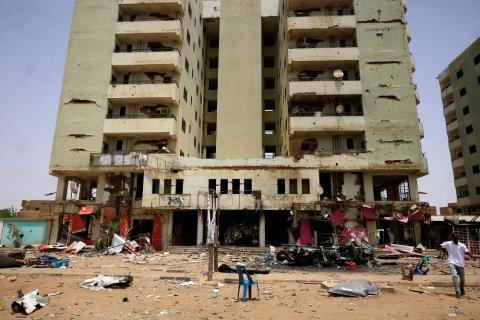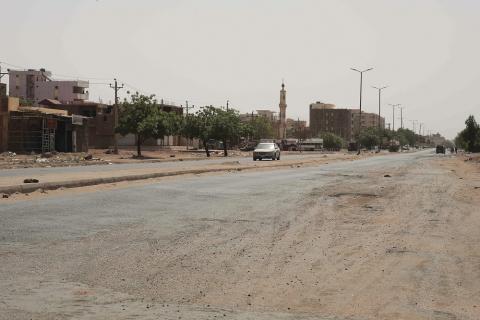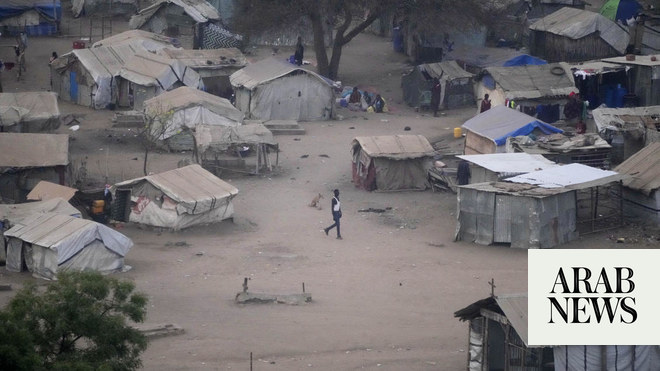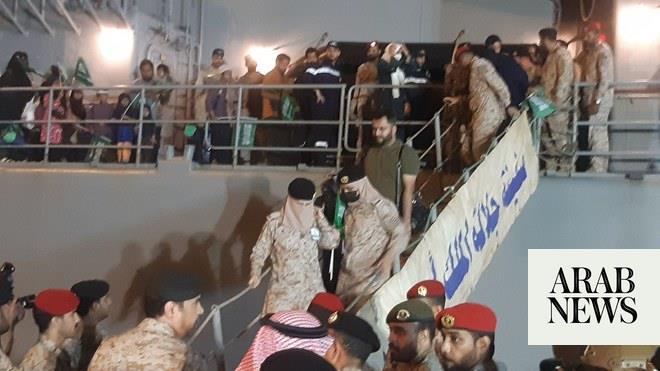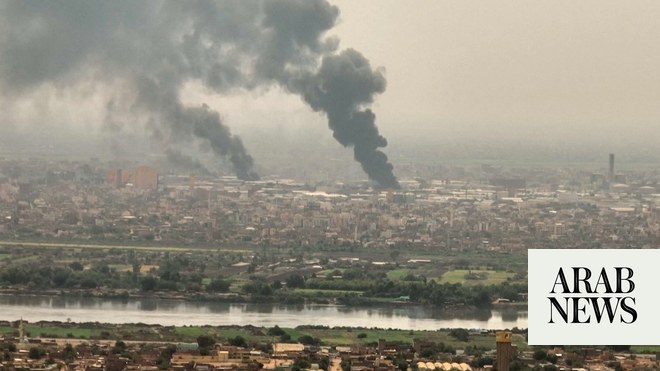
Black clouds rose over the capital Khartoum in fresh fighting and the United Nations reported bitter urban battles in the war-ravaged Darfur region where scores were reported dead.
Khartoum: Heavy fighting raged on in Sudan Friday with warring generals trading blame, despite their agreement to extend a truce aimed at stemming nearly two weeks of warfare that has killed hundreds and caused widespread destruction.
Black clouds rose over the capital Khartoum in fresh fighting and the United Nations reported bitter urban battles in the war-ravaged Darfur region where scores were reported dead.
Turkiye’s defense ministry reported that one of its military transport aircraft had come under fire, underscoring the risks as foreign governments scramble to wrap up evacuations of their citizens.
Violence broke out on April 15 between Sudan’s army led by General Abdel Fattah Al-Burhan and the paramilitary Rapid Support Forces (RSF) commanded by his former deputy and fellow coup leader Mohamed Hamdan Daglo, with warplanes pounding RSF positions in densely packed districts of Khartoum and fighters exchanging heavy machine gun fire.
The rival generals agreed Thursday to extend a repeatedly broken cease-fire for three more days after mediation led by the United States, Saudi Arabia, the African Union and the UN aimed at securing a more lasting truce.
But witnesses told AFP they heard air strikes and anti-aircraft guns being fired near the army command in Khartoum, where many residents have been shuttered at home with dangerously low levels of food.
Daglo denounced the army chief in an interview with the BBC, saying: “Burhan is not trustworthy and is a traitor. This war destroys Sudan.”
In an interview with US-based channel Al-Hurra, Burhan claimed “mercenaries” were pouring over the border from Chad, Central African Republic and Niger to exploit the chaos.
At least 512 people have been killed and 4,193 wounded in the fighting, according to health ministry figures, which are believed to be incomplete.
The Sudanese doctors’ union warned Friday that the collapse of the health care system was “imminent,” with more than 12,000 patients at risk of dying as they could not access regular kidney dialysis.
The UN humanitarian agency said just 16 percent of health facilities in Khartoum were still operating normally, leaving millions without access to health care.
Fighting has also spread across Sudan, especially in long-troubled Darfur, where witnesses reported intense conflict and looting.
The Darfur Bar Association, a civil society group, said fighters were “launching rockets at houses” in the West Darfur state capital El Geneina, some 1,100 kilometers (685 miles) west of Khartoum. It also reported firing from “rifles, machine guns and anti-aircraft weapons.”
“There is no food except what people have stored at home,” one resident said, asking not to be named.
Fighting has spread “nearly all over the city,” the Bar Association said, urging Burhan and Daglo to “immediately stop this foolish war that is being waged on the backs of civilians.”
UN human rights office spokeswoman Ravina Shamdasani said 96 people were reported to have been killed in El Geneina since Monday.
The UN is “concerned at the serious risk of violence escalating in West Darfur,” Shamdasani said, warning that the hostilities between the military and RSF “have triggered intercommunal violence.”
Darfur is still reeling from the devastating war that raged in the 2000s, when then hard-line president Omar Al-Bashir crushed ethnic-minority rebels by creating the Janjaweed militia to carry out atrocities, a force that later formed the basis of Daglo’s RSF.
The scorched-earth campaign left at least 300,000 people dead and close to 2.5 million displaced, according to UN figures, and saw Bashir charged with war crimes, crimes against humanity and genocide by the International Criminal Court.
Amid the chaos, several prisoners escaped jail, including war crimes suspects from Bashir’s regime.
The UN voiced alarm at the prison breaks, pointing to “the prospect of further violence, amid a generalized climate of impunity.”
The US, whose diplomats have been mediating by telephone between the warring generals, acknowledged violations of the truce.
“But implementing cease-fires is often difficult at the start. Violations of the cease-fire do not mean a failure of the cease-fire,” State Department spokesman Vedant Patel told reporters.
Britain announced it would end evacuation flights from Sudan on Saturday, after airlifting more than 1,500 people out this week.
The World Food Programme has said the violence could plunge millions more into hunger in a country where 15 million people — one-third of the population — already need aid to stave off famine.
Over 75,000 have fled their homes, according to the UN’s International Organization for Migration, while tens of thousands have crossed into neighboring countries including Chad, Egypt and South Sudan.
South Sudan’s foreign ministry warned Friday that the conflict’s “spillover effects are already visible.”
Burhan and Daglo — commonly known as Hemeti — seized power in a 2021 coup that derailed Sudan’s transition to democracy, established after Bashir was ousted following mass protests in 2019.
But the two generals later fell out, most recently over the planned integration of the RSF into the regular army.




